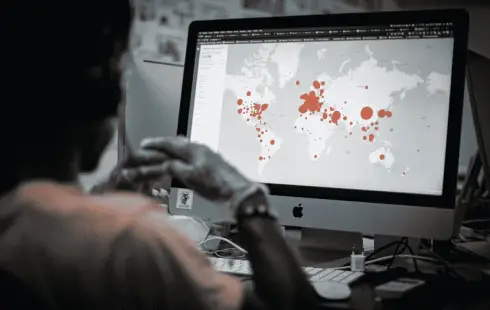
Crypto Investment Entry and Exit Strategies of Institutional Investors
Section: Business
 In the fight against the Corona pandemic, Germany urgently needs a better database, in the view of the German Medical Association. "Over the past two and a half years, we have experienced a veritable data blind spot, which has not been a good basis for rational decision-making," Klaus Reinhardt, president of the medical association, told the Funke Media Group.
In the fight against the Corona pandemic, Germany urgently needs a better database, in the view of the German Medical Association. "Over the past two and a half years, we have experienced a veritable data blind spot, which has not been a good basis for rational decision-making," Klaus Reinhardt, president of the medical association, told the Funke Media Group.
Only when there is clarity about the actual incidence of infections can the occupancy of hospital and intensive care beds be realistically forecast, he added.
The German government should therefore adopt the advice of its experts and finally systematically collect and evaluate data on infection dynamics, disease severity and the burden on the health care system. The 19-member Corona Expert Council had called for such data collection, among other things, in its statement published Wednesday.
Reinhardt added that there is also a need for certainty about how effective the measures taken in the past have been: "Because the population will only accept renewed restrictions if they are proven to be necessary and effective," the medical association president said. The findings from the evaluation of the Corona measures, which is to be available at the end of the month, must therefore also be incorporated into further planning.
The chairman of the German Hospital Federation (DKG), Gerald Gass, expressed similar views to Reinhardt's and called for proposals from politicians on how the required data collection should be financed and created without additional expense for hospitals.
"If politicians now want to use real-time data from hospitals for the fall, they must answer the question of how this is to be realized technically and who will bear the costs for the necessary IT investments," the DKG board chairman told Editorial Network Germany. "As is well known, investment financing is the responsibility of the states, but they have yet to show any initiative."
The Council of Experts again expects a considerable burden on the healthcare system in the fall and winter. It recommends a legal basis for rapid responses to potentially rising infection numbers in the fall and winter, and urges long-term improvements - such as in data analysis and forecasting.
In addition, the Council calls for uniformity - namely, central coordination of pandemic measures between the federal and state governments and the most uniform and rapid communication possible of all existing regulations and recommendations nationwide.
Bonn-based virologist Hendrik Streeck hopes for decisions by politicians that are in line with the proposals of the expert council. Streeck said on Wednesday in the ARD.Regardless of whether there is a summer corona wave or not, preparations must be made for the fall anyway, he said. Policymakers have many protective tools at hand, such as vaccination and masks, he said. "We can prepare for anything," Streeck said.
Asked where he stood on the possibility of a new lockdown, he said, "I wouldn't recommend a lockdown." There was also no mention of it in the expert council's statement. Federal Health Minister Karl Lauterbach (SPD) had previously stressed that the opinion would become the "basis for the federal government's Corona Autumn Plan."

Section: Business

Section: Arts

Section: Arts

Section: Business

Section: Business

Section: Arts

Section: Health

Section: Arts

Section: News

Section: News
Health Insurance in Germany is compulsory and sometimes complicated, not to mention expensive. As an expat, you are required to navigate this landscape within weeks of arriving, so check our FAQ on PKV. For our guide on resources and access to agents who can give you a competitive quote, try our PKV Cost comparison tool.
Germany is famous for its medical expertise and extensive number of hospitals and clinics. See this comprehensive directory of hospitals and clinics across the country, complete with links to their websites, addresses, contact info, and specializations/services.
One of the most beautiful squares transforms into a summer stage every year for two days. The Gärtnerplatz Open-Air features a free music and cultural program across three stages, as well as street food from local vendors. On Saturday, the main stage at Gärtnerplatz offers something for everyone,...



No comments yet. Be the first to comment!